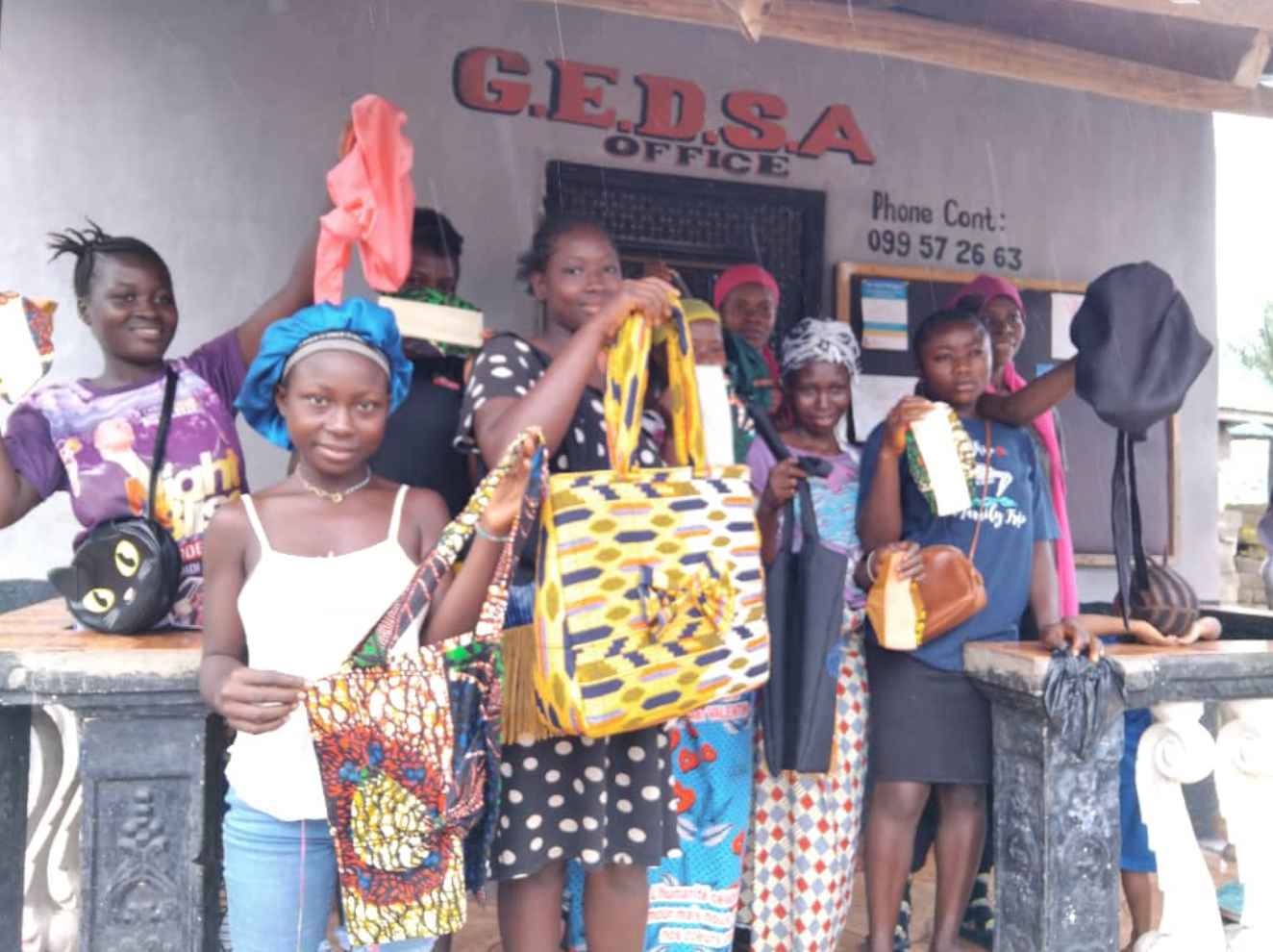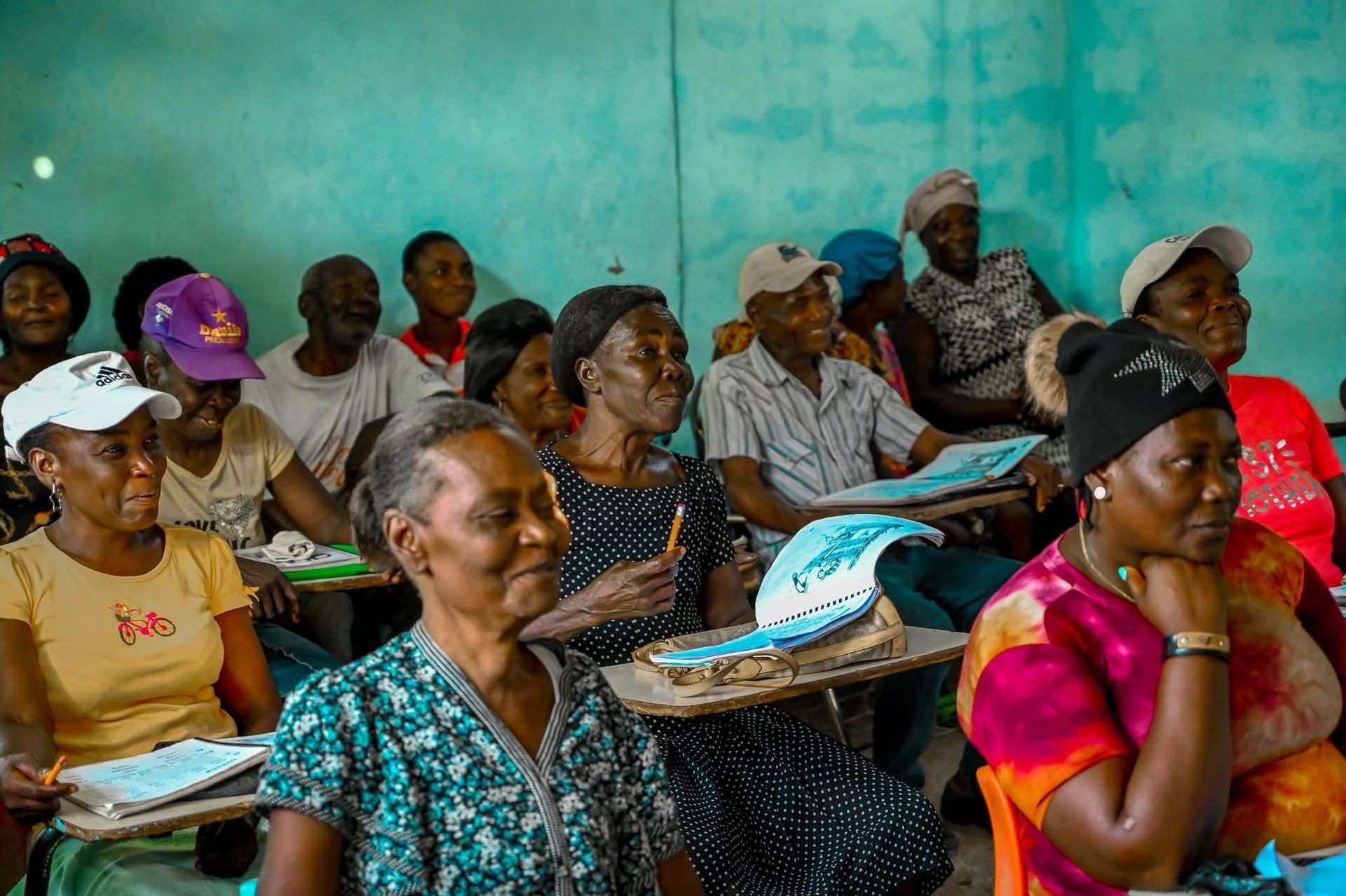By Sarah Grey
•
January 28, 2026
Alfa Limonade, Haiti For all our people who were deprived of childhood education, the objective of this Alfa programme is to provide the opportunity to become literate. In Haiti, especially in rural areas such as ours, literacy rates are dismal. 44% of Haitian men and 56% of Haitian women are illiterate, but these statistics are far worse in villages and the countryside. (UNESCO) Launched 23 years ago, Alfa uses an excellent participatory text book, Goute Sel, for writing, reading, and comprehension. It was developed specifically for use here in Haiti. We also use Ti Koze Sou Istwa Peyi Ayiti, stories and questions from Haitian history, and Lekti Net Ale, reflections on connecting with the world. Through blackboard instruction and Kaye Kalkil, Alfa participants practise exercises in arithmetic. At the second level we launch group discussion through reading Edikasyon Civik. After long consideration, our team of monitors has established that Alfa must develop its own practical introduction to numeracy for adult learners. Our improved numeracy project must adjust to the situation of Alfa participants. Obviously, in their daily lives our participants constantly face numeracy problems. Having no education, they were unaware of their lack of capacity. Today, through Alfa, they are gaining in literacy, and we should also ensure that, despite their often advanced ages, they also become numerate. They must not lose this gift simply because they have been deprived of the basic human right to education. Through our new tool, Alfa’s market women and peasant farmers will grasp the basics of numeracy, so that they are not lost in the economic situations of their adult lives. They will address these problems with awareness, papers and pencils in their hands - just as others do! Chancy Jacques, Alfa Supervisor, and Antolius Pierre, Alfa monitor in Jede, are collaborating on Alfa’s own book, Kalkil San Limit, with the following objectives: To support our monitors with a good tool for introducing numeracy. To reinforce the capacity of every Alfa participant. To enable participants to reflect productively. To enable participants to calculate well and fast. To enable participants to record their written results. Thus Kalkil San Limit will include the following sections: numeracy, problem solving, geometry, and mental calculation. Numeracy is a key part of the core skill base of a literate individual. In our Haiti, this means the ability to understand and use basic maths in real life situations at home, in the market place, or for agricultural transactions. We are preparing to go to print this summer! By Sarah Grey Alfa Limonade, Haiti




